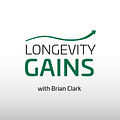When we talk about movements, we bring a powerful element of influence to bear – unity. But underlying that group identity is something more fundamental: status.
As soon as we belong, we begin jockeying for a position relative to others. This is the potent intersection of belonging and self-esteem in Maslow’s Hierarchy of Needs.
Status seeking is not inherently shameful; it’s inherently human. Even saying you don’t care about your social position is a form of status-seeking. It’s also a prime motivator for doing good things for others and society at large, and that’s in no way a bad thing. Just be careful with the virtue signaling and humble brags.
Marketing inherently caters to status. Inadequacy marketing plays on a lack of stature to prompt purchases, while empowerment marketing seeks to elevate social standing from a more positive frame. The type of status games people play go back to worldviews and values, so inappropriately playing the status card will alienate prospects instead of empowering them.
Older consumers are suffering from a lack of status, which is even more puzzling when you account for the wealth and consumer spending power they wield. In this episode we discuss the first step to changing the status quo with your marketing efforts.
Tune in to hear:
Why seeking individual status is such a fundamental human desire
How status impacts dynamics between and within groups as well
Why even the decision to abstain from cultural status symbols is, itself, a form of status seeking
How the signs of status we focus on change as we get older and have more life experience
The most fundamental form a status that tends to be meaningful across all psychographic categories of older adults
Why empowerment marketing is so much more effective than inadequacy marketing with older consumers










Changing the Status Quo of Status for Older Consumers